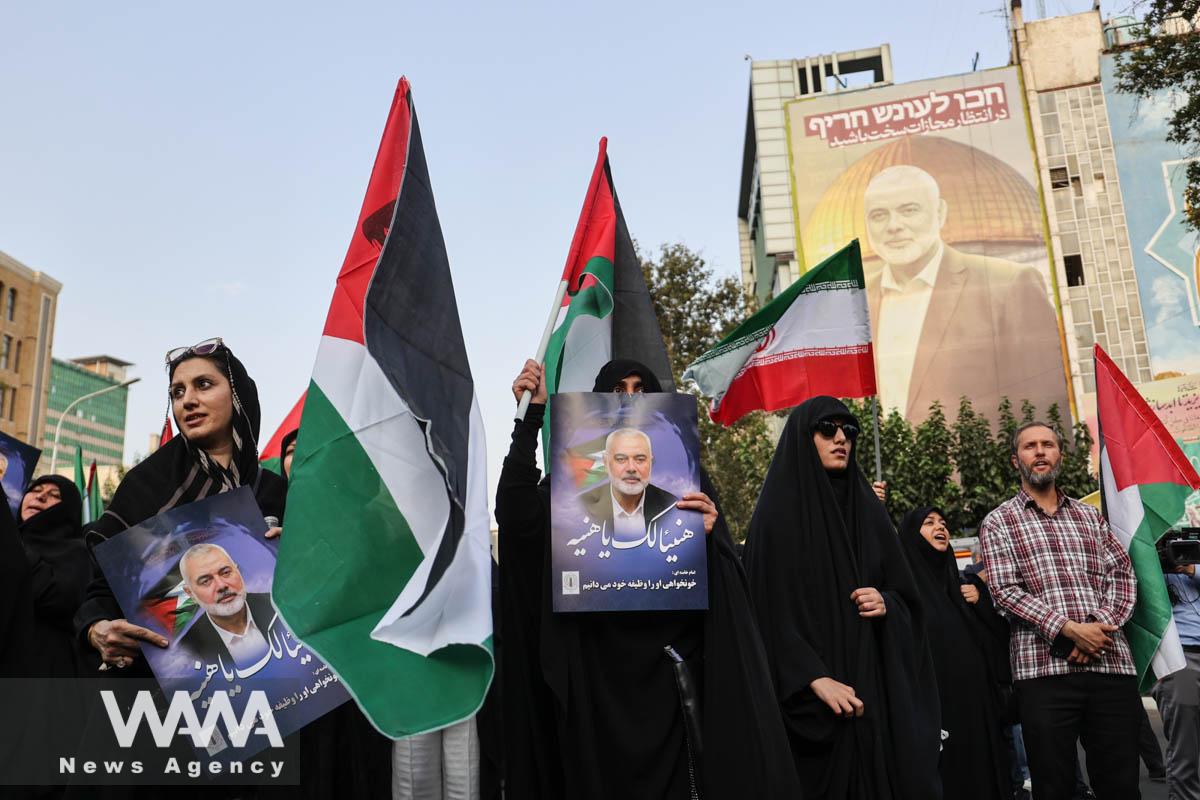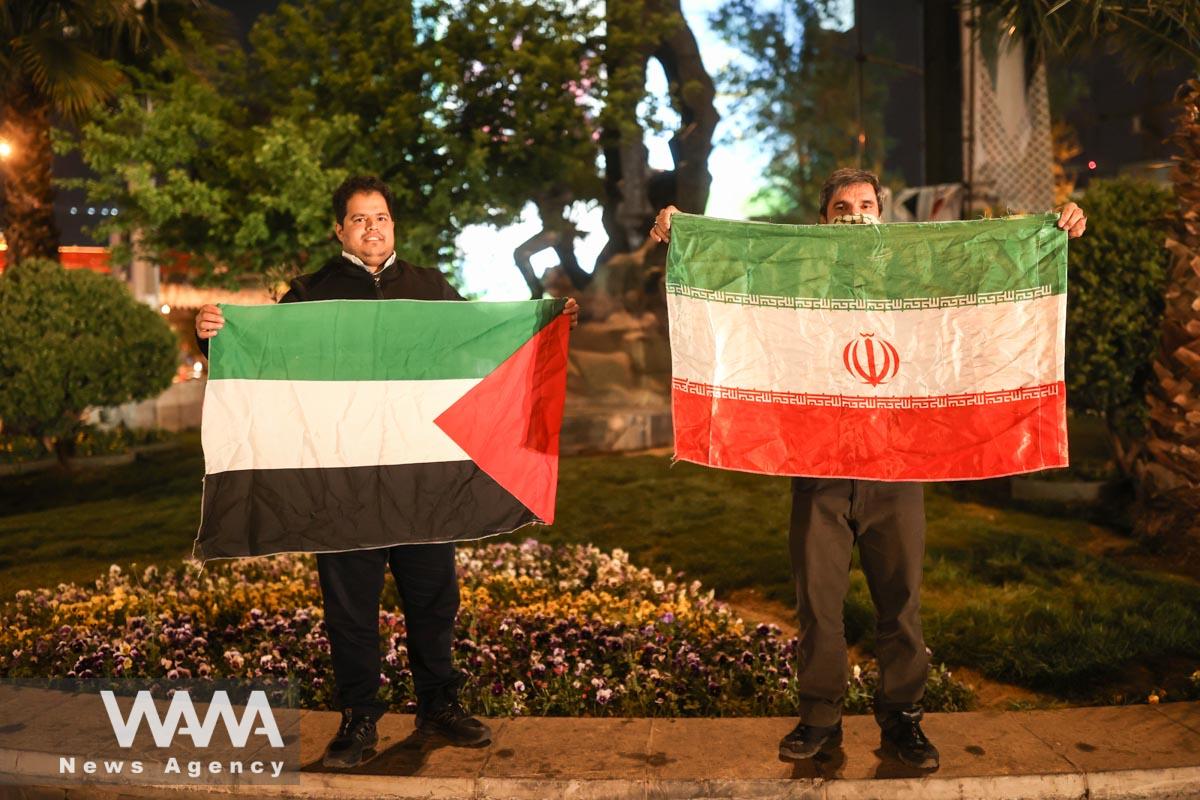Confronting Iran’s Bold and Uncompromising Demands: A Call to Action
WANA (August 06) – Whenever we witness a violation of Iran’s sovereign rights, and our country seeks to use its sovereign tools in defense of its rights, a group of countries becomes active, calling for Iran and other parties to exercise restraint. This is a repetitive and tiresome behavior that is not compatible with diplomatic logic. Diplomacy is a process and a package. Episodic and incidental diplomatic actions are the least effective behaviors.

People hold Palestinian flags as they attend an anti-Israel gathering following the killing of Palestinian group Hamas’ top leader Ismail Haniyeh, amid the ongoing conflict between Israel and Hamas, in Tehran, Iran July 31, 2024. Majid Asgaripour/WANA (West Asia News Agency)
We know the global community’s paradigm is power and dominance. International relations are devoid of justice and morality. But this does not mean these international relations should be unilateral, coercive, and devoid of fairness.
Sporadic diplomatic requests and gestures towards a country that has experienced years of the imposition of unilateral coercive tools and has been treated entirely unfairly are neither trust-building nor can they lead to a desirable outcome.
Following the assassination of prominent Hamas leader, Martyr Ismail Haniyeh, by the Israeli regime and Iran’s announcement of its decision to seek justice for him, numerous countries, including the United States, several European nations, the G7, and some regional countries, have called for Iran to exercise restraint and absorb this blow to its national security. These requests are more of a shameless demand than a diplomatic action.
Any impartial and fair observer facing such requests might consider the following points:
How is it possible for you not to condemn a terrorist operation and ignore the damage to Iran’s security and sovereignty as a member of the international community? How can you remain silent and indifferent to such an act yet ask Iran not to defend its national interests and sovereignty?
Is it possible to exclude the largest country in the Middle East from its political, economic, and security matters, ignore its regional interests, and not consult it, yet still ask for its help in maintaining regional stability and security?
Why, over many years, have you avoided severe diplomatic exchanges with Iran based on mutual respect and mutual benefit, choosing instead to speak only in the language of coercion, arrogance, and sanctions? Yet, when Iran seeks to take compensatory actions based on its sovereign rights, you suddenly remember the tool of “diplomacy” and send diplomatic messages to Iran despite having severely weakened diplomacy with our country over the years.
The negligence of smaller countries, which remain silent in the face of the unfair and unilateral actions of Western nations or, worse, assist them without considering the long-term effects on international stability, is also unacceptable and dishonest. I have termed this diplomatic attitude “passive unilateralism.”
In practice, these countries, which constitute the majority of the international community, and even with their votes in the United Nations and other international organizations, only further the goals of a few specific nations.
Successive Iranian governments have always emphasized one message to the international community: the importance of dialogue based on mutual respect. This message is not merely a slogan or diplomatic rhetoric.
Iranians take mutual respect and interests very seriously. I believe that the first diplomatic message from the new Iranian government to the international community will also be to promote dialogue based on mutual respect. For Iran, mutual respect means that Iran’s interests and perspectives in the Middle East are recognized and respected.

An Iranian man holds a Palestinian flag during a celebration after the IRGC attack on Israel, in Tehran, Iran, April 14, 2024. Majid Asgaripour/WANA (West Asia News Agency)
While the Middle East is a region of major and unpredictable events, the international community cannot overlook or ignore Iran’s influence and power in this region. The assassination of Martyr Ismail Haniyeh and Iran’s retaliatory actions against those responsible for this terrorist operation will not be the first or the last event in this region.
Naturally, they need to revive their diplomatic interactions with Iran and respect our country’s interests so that Iran can reciprocate with respect. Diplomacy is not a momentary or incidental matter, and only Iran will decide how to defend its national security and sovereignty.













